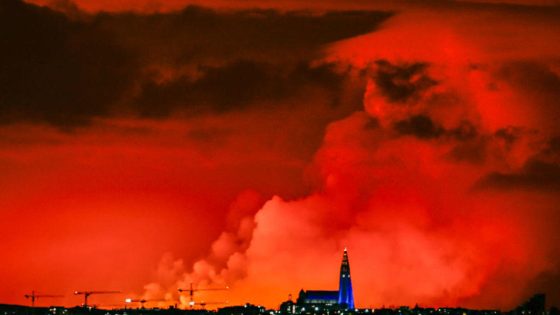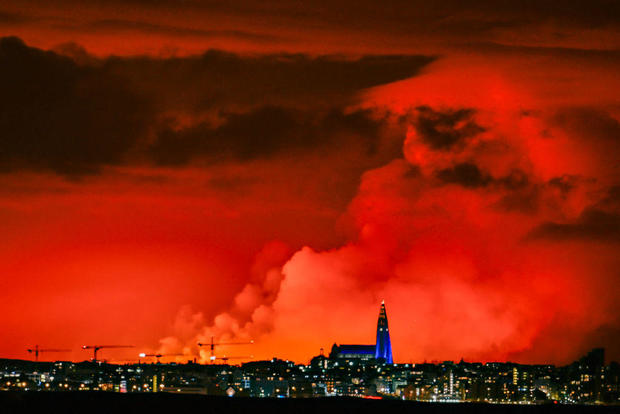Lava spewed Saturday from a new volcanic fissure on Iceland’s Reykjanes peninsula, the fourth eruption to hit the area since December, authorities said.
A “volcanic eruption has started between stora Skogfell and Hagafell on the Reykjanes Peninsula,” said a statement from the Icelandic Met Office. Live video images showed glowing lava and billowing smoke.
Iceland’s Department of Civil Protection and Emergency Management announced it had sent a helicopter to narrow down the exact location of the new fissure.
HALLDOR KOLBEINS/AFP via Getty Images
Minutes before the eruption, the IMO had issued a statement saying that seismic activity indicated that there was an increased chance of an eruption.
Local media reported that the evacuation of the fishing town of Grindavik had started, residents having received text messages telling them to leave quickly.
The roughly 4,000 residents of Grindavik had only been cleared to return to their homes on Feb. 19 after having been evacuated on Nov. 11, 2023.
On that occasion, hundreds of tremors damaged buildings and opened up huge cracks in roads.
The quakes were followed by a volcanic fissure on Dec. 18 that spared the village.
But a fissure opened right on the town’s edge in January, sending lava flowing into the streets and reducing three homes to ashes, followed by a third eruption near the village on Feb. 8.
Iceland is home to 33 active volcano systems, the highest number in Europe.
It straddles the Mid-Atlantic Ridge, a crack in the ocean floor separating the Eurasian and North American tectonic plates.
But until March 2021, the Reykjanes peninsula had not experienced an eruption for eight centuries.
Further eruptions occurred in August 2022 and in July and December 2023, leading volcanologists to say it was probably the start of a new era of seismic activity in the region.
Source Agencies



